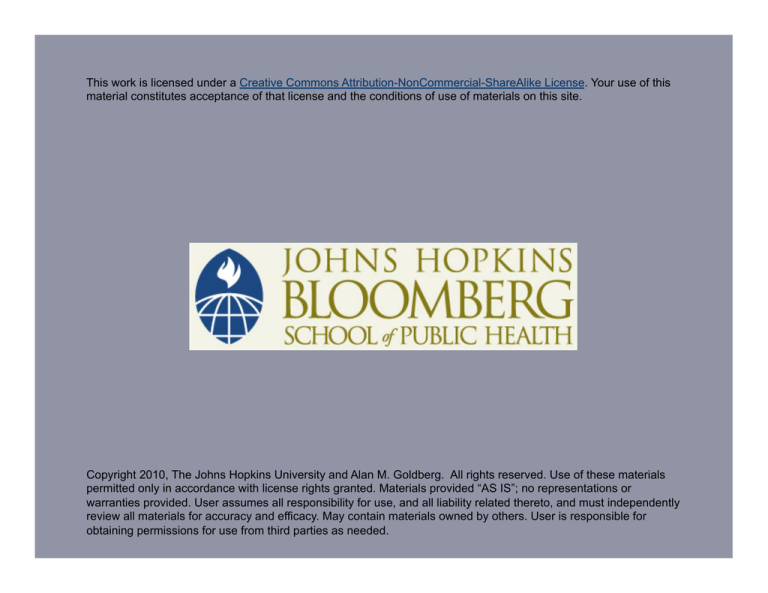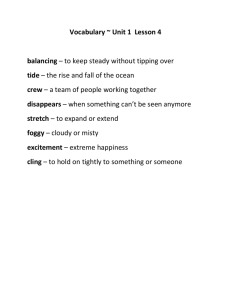
This work is licensed under a Creative Commons Attribution-NonCommercial-ShareAlike License. Your use of this
material constitutes acceptance of that license and the conditions of use of materials on this site.
Copyright 2010, The Johns Hopkins University and Alan M. Goldberg. All rights reserved. Use of these materials
permitted only in accordance with license rights granted. Materials provided “AS IS”; no representations or
warranties provided. User assumes all responsibility for use, and all liability related thereto, and must independently
review all materials for accuracy and efficacy. May contain materials owned by others. User is responsible for
obtaining permissions for use from third parties as needed.
Section D
The Tipping Point
The Tipping Point: 2006
A National Toxicology Program for the 21st Century: A Roadmap For
the Future
- Specifically identifies the three Rs
- Cites AWA—minimizing pain and distress
- Requires training in humane science for all NTP investigators/
contractors
3
The National Academies
Non-governmental organization established by Congress
Members are nominated based on accomplishment
Consists of three branches
1. National Academy of Science
2. National Academy of Engineers
3. Institute of Medicine
Can be contracted by U.S. government agencies and branches to
conduct studies
NAS was contracted by the EPA to study on what toxicity testing
should be in the 21st century
4
A Vision and Strategy: June 2007
http://www.nap.edu/catalog.php?record_id=11970
Toxicity Testing in the 21st
Century: A Vision and Strategy
- Animal studies—time
consuming and expensive
- Lack of predictability of animal
tests
- Use of human cells in culture
- Systems biology and pathways
= mechanisms
5
Systems and Pathway Biology
6
Translational Research
A role for academics
Using observations in individuals to design studies to understand
mechanisms, and then using mechanism to design an approach to
make predictions
7
The Tipping Point: Animal Testing
8
EPA-NIH Memorandum of Understanding
“We propose a shift from primarily in vivo animal studies to
in vitro assays, in vivo assays with lower organisms, and
computational modeling for toxicity assessments.”
— Science. (2008, February). Developing the science
for the NAS: 21st century vision.
9
Toxcast: High Throughput
Source: Toxcast. http://www.epa.gov/ncct/toxcast/
10
The Tipping Point
“Animal testing won’t disappear overnight, but the agencies’
work signals the beginning of the end.”
— Elias Zerhouni, February 2008
Director, NIH
11






